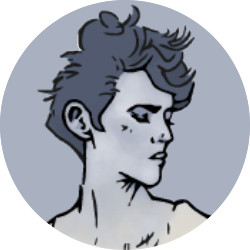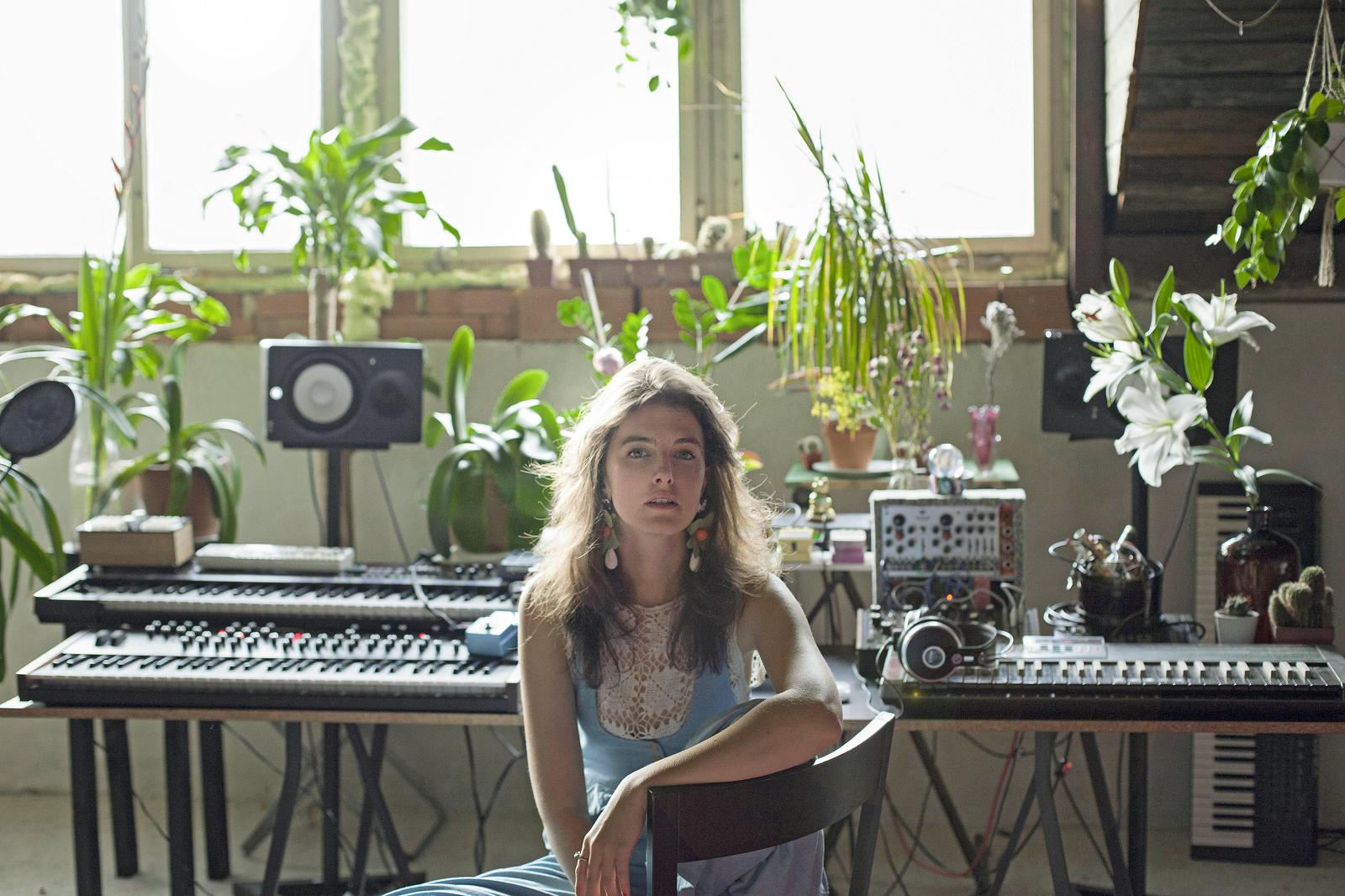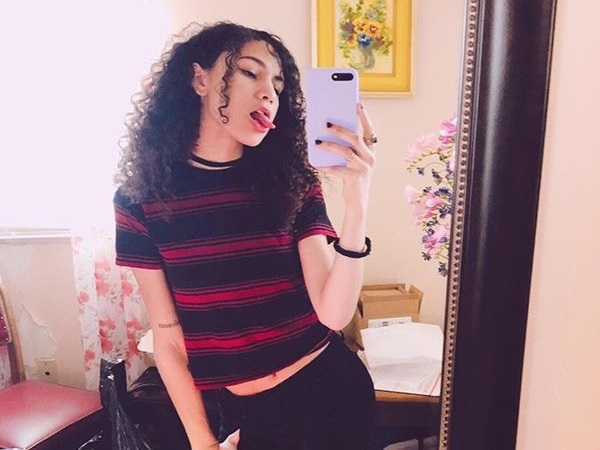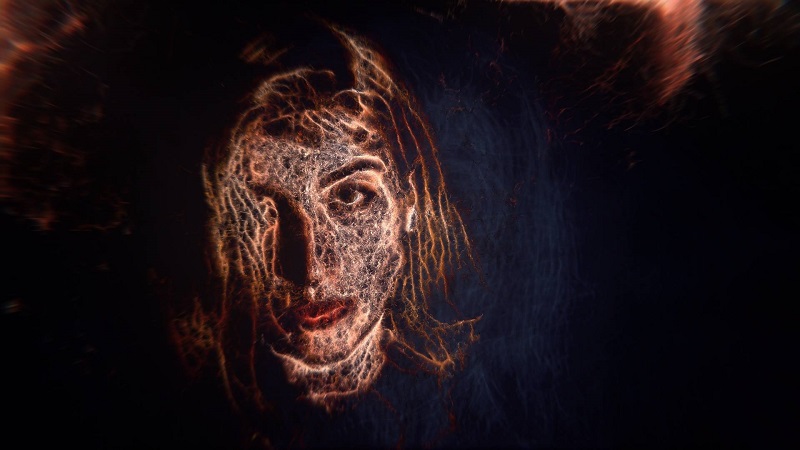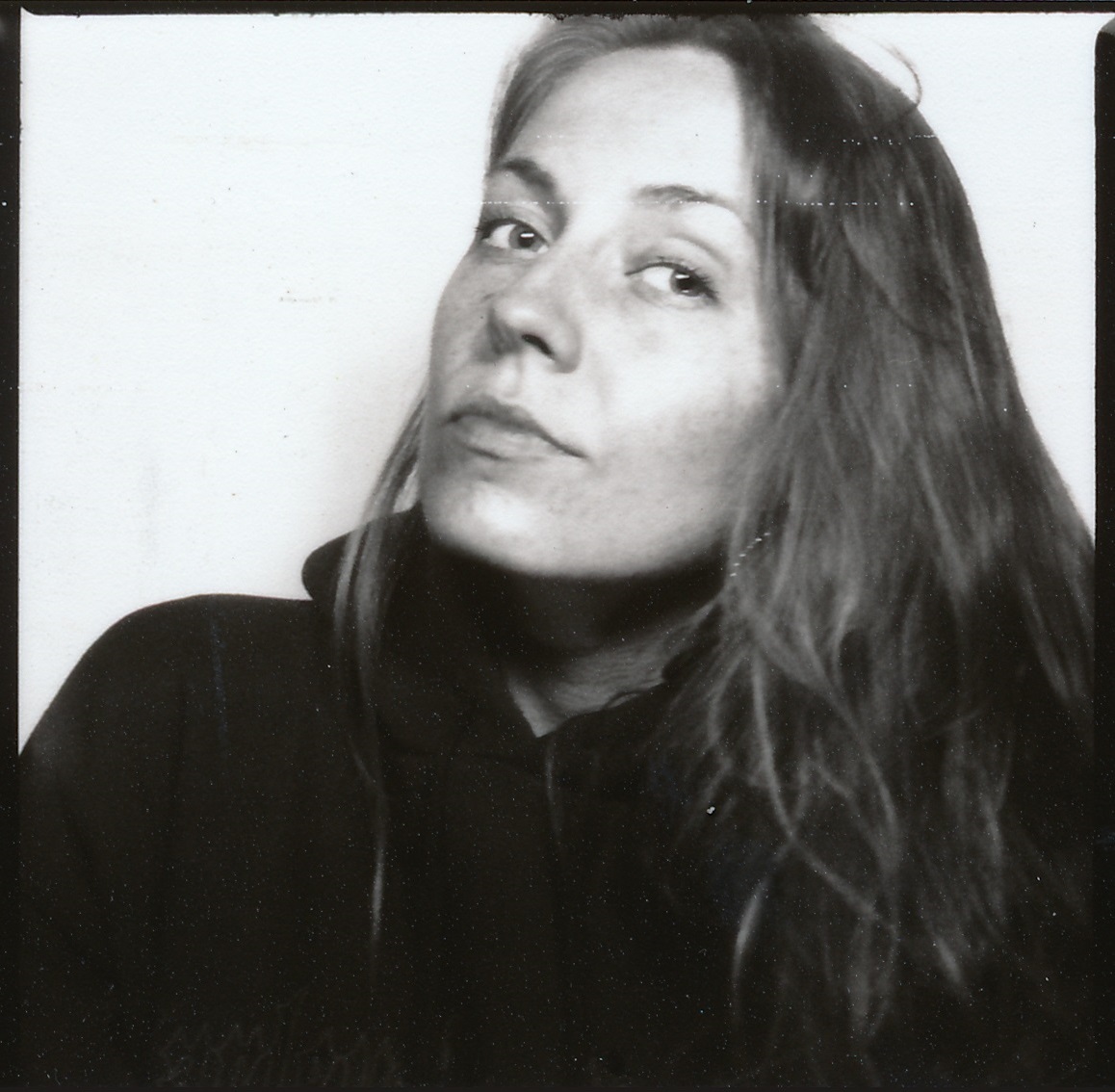 Photo credit: Hamburg automat :-)
Photo credit: Hamburg automat :-)
The Interview
What was it that initially inspired you to start making music and writing songs?
Brynja: I went to a street theatre in Norway. I was with my friend — she played guitar and wrote her own songs — and she asked me if I could do a second harmony on her song, because she wanted to play it for the people there. I was twenty at the time, and I’d never really considered that I could play music. So, I told her, “Okay, I can try.” After that, I started to pick up her guitar and try to learn how to play. There wasn’t really much to do in the woods in Norway after our rehearsals — there was nothing around, just this group of people doing street theatre for a month. So, I thought, “I have enough time, I’m just gonna learn how to play the guitar.” I learnt some chords and stuff — not a lot — and then I fell in love, as well. [laughs]
It was such an amazing experience for me, this whole street theatre, and I wrote my first song straight after I came home. I was really surprised. I remember thinking: Okay, I don’t know where that came from. I’m probably never going to write a song again. Then, that summer, I wrote so many songs. When I was younger my parents always wanted me me to play instruments because they knew I had a musical ear, but I never wanted to practice. At that moment, when I was twenty, it kinda came from myself. That’s when I became very interested in making music.
Did you have any desire at all to make music when you were younger?
Brynja: I have a memory from when I was about nine. There was this Icelandic singer who released an album at the same age, and I remember being super impressed and thinking to myself: That’s so cool! I wanna be like her. But apart from that, not really. I started dancing, and I was really into that. I wanted to be a dancer.
Do you ever feel like, having started at the age you did, that maybe you’re at a disadvantage, or that you’ve had a lot of catching up to do?
Brynja: I’m 27 now, and sometimes I do feel like it maybe would’ve been nice to have started earlier, but then again, it doesn’t matter; this is just my story, my path I’m creating. I think, because of everything that’s happened in my life, I’m here, right now, and I feel like I’m in a really good place.
Would you say that your attitude to music before now was quite casual?
Brynja: Yeah, I always thought about it more as a hobby, but now I’m trying to see if I can do it more professionally. It’s the first time ever that I’ve not had any job — I’m just doing school and music. I really enjoy it.
I was a bit tired of the guitar. I remember sitting down with it and trying to write and nothing really came to me anymore — I had a huge writers block. I released a song in November, Liar — it was one of the first songs I wrote, and I always wanted to record it. Now, after the release, I feel like I’m free to explore new things again. I feel like when I first started making music. Back then, I wrote so many songs because it was so new to me. I feel like I’m back there again, because now I’m making music in a different way, experimenting with new genres, new sounds and topics.
So, what are the major differences between the music you’re making now, and that which you were making before?
Brynja: Now, I’ll sometimes have an idea about lyrics or a melody or something, and I’ll meet up with some of my music friends and tell them my idea. Then, we create something together. That’s unlike anything I ever did before — I always wrote everything by myself on the guitar. Also, I always used to write about my feelings. Now, I’m trying other topics as well.
And what changes have you implemented in terms of the actual music itself?
Brynja: Rhythm. Beats. A few are based on keys. I’m also trying a bit of rapping as well. [laughs]
I wasn’t expecting to hear that!
Brynja: [laughs]
What has inspired you to move in that direction?
Brynja: Probably the people I’ve met recently through school. And I was also very inspired by this podcast called Dissect. It’s really good. It’s a guy who’s dissecting albums, diving into every single detail — sound and lyrics and everything. He’s so good at it. After listening to this podcast, I was so inspired; I thought: Wow, you can actually write an album — I always thought you would just write songs and then put them together to make an album. It really gave me a new perspective on how to make music, you can have an idea — a whole story — and then create songs from that. In this podcast, he talks about Frank Ocean and Lauryn Hill… and Kanye West. [laughs] So, my inspiration is more there now. And Solange — her album, A Seat at the Table; I really like that album.
How long do your creative ideas generally take to develop?
Brynja: It depends. If I have an idea that feels right then maybe for a few days I’ll be really immersed in that, and I’ll write everything that comes to mind. Then I’ll maybe leave a few sentences out if I don’t know how to finish it, and go back to it later. Now, for the first time, I’m working on a few songs at the same time.
Some lyrics come quickly, but I’m really careful about what I want to say — I don’t want to just write whatever. So, I’ll take my time.
Do you prefer to write in English?
Brynja: Yeah, I do. I think, in the beginning, when I started writing songs, I was just speaking my heart, straight. It just felt too awkward or too sincere to write it in Icelandic. If I did it in English, I got a little bit of distance from it. But I have written some songs in Icelandic; the first song that I wrote was in Icelandic.
Is there a particular mood you tend to be in when you do your best writing?
Brynja: When I write something I like it feels kind of magical. Have you heard of Elizabeth Gilbert? How she talks about creativity? That’s amazing. Basically, what she’s saying is that everybody has a genius instead of you being a genius. It’s like a spirit or something that gives you ideas, and if you’re open enough to it, you’ll be like, “Great!” and write the idea down. So, sometimes it just really feels like you’re not writing the song yourself — it’s writing itself, through you.
I really like to write on the train or on the bus. I went to Hamburg the other day, and I was sitting on the bus for six hours — I finished one track that I’d been working on for a while and got an idea for a new one. It’s nice to be on the move; it gives your brain time off from your everyday life and creates space for new ideas.
Aside from taking the bus, is there anything else you do to stimulate your own creativity?
Brynja: I figured out that having a routine is really good for me. I always used to think that it’s best to make music in the night — but now I really feel like it helps me to wake up early. Writing in the morning is pretty nice. I go swimming – coming from Iceland where we have a lot of swimming pools, I think the worst thing about moving to a new country is that there aren’t swimming pools on every corner. [laughs] But I managed to find one here that’s not too far away. In the morning, I go swimming, and after that I have a few hours until I go to school, so I try to be organised and use my time [to write].
How do you keep yourself interested in your art when the initial joy of inspiration wears off?
Brynja: I think it’s really important, like I was talking about with the routine, to detach yourself from what you’re doing. I try to, in the afternoon, just go home and cook and do my stuff; not do anything work related — just be excited to start again in the morning. Also, I try to keep in mind that I don’t have to make anything perfect. Nothing is really perfect. To try to find the joy in it and not worry too much.
Does that come quite naturally for you?
Brynja: Yeah, I guess so, but it is definitely something I have to remind myself of once in a while.
What do you feel is the most important element of any song that you write? What makes a song a Brynja song?
Brynja: I think the meaning is the most important. If I’m writing a song, and I feel like it doesn’t have any special meaning to me, then it’s not a song I want to release. The recording process is also important — the song has to sound like me. It’s maybe hard to pinpoint exactly what that means, but I will know when it sounds right.
I get really uncomfortable if I feel like the song is slipping out of my hands; if there’s a producer who kinda changes the song in a direction that I don’t feel is right for me… I really have to feel like I’m in control of what I’m doing, and I’ve sometimes had to fight for that.
How comfortable do you find that relationship between yourself and a producer then?
Brynja: The songs that I recorded for my EP were recorded with a friend who really gets my vibe. He was the first person that I ever recorded with and we just clicked. It was good to work together because I knew what I wanted, and he was there to help me get there. And I really like how he makes my music sound. He recorded me and did the mixing, but I was always very involved in the process, sometimes I’d be sitting by his side, like, “Oh, turn this up”, or “A bit less reverb.”
I think you just have to work with somebody that you feel comfortable with. I’ve also found some really nice people here in the Netherlands that I’m working with now. I’ve been working a lot with a guy lately, and it’s going very well — I have the feeling I’m making my music, but he is adding his flavour in there and elevating my ideas. Sounds pretty sweet.
Given what you’re studying at the moment — audio engineering — do you hope to move towards doing more of this stuff yourself in the future?
Brynja: I think that was my plan when I started the studies, or at least I wanted to figure out if that was what I wanted. I was living here in the Netherlands — for a year I was working in an office, and I didn’t really know a lot of creative people around here. At the time, I was recording my song, Liar, and I was working on it with a guy in Berlin. I went to Berlin a few times to work on it, but when I was back in the Netherlands and wanted to try some ideas, I didn’t know how to and I felt really helpless. That’s why I started the studies, because I wanted to be able to do more stuff myself. Hopefully, now, I’m better at communicating what I want.
It’s really good for me to learn some basics about recording, but it’s pretty clear to me that I’m more interested in the creative process than the engineering part. The ideal situation is to have a good team around me so I don’t have to think about everything myself. I have tried writing a song, recording it and mixing it myself, and it’s not the same — if I do everything on my own, I lose the joy of it. And I guess it’s also better to distance yourself from what you are doing a bit, then I can listen to the song with fresh ears.
Is there an element of your craft that you’d especially like to improve upon?
Yeah, I want to know more about the marketing side of music – to know more about how everything works. I haven’t been so good in putting myself out there. Like you said, you couldn’t [until recently] find any information about me on the internet. [laughs] So, now I’m trying to be more active on social media and sharing my music.
Okay, so what do you feel that you gain from being artistically inclined?
Brynja: Like I told you, last year I was working in an office, and it really didn’t give me any joy. At the beginning I thought it was interesting — it’s good to try something new — but, at the end of the year, I was just like a different person — I think I’ve never felt less happy about myself. I really feel the difference now. It gives me a lot, actually: to be doing this, to be creating.
I took a break from dancing school, because I was confused — I didn’t know if I wanted to do music or dancing. I didn’t know what to do. I remember my dad asked me, “What do you want to do with your life?” and I said, “I want to save the world.” [laughs] I mean, we are faced with issues like climate change, and it’s quite scary. I want to be able to help somehow. Recently, I started writing songs about that topic. I don’t know if that can actually help, but at least it gives me the sense that I’m trying to contribute using the tools that I have. And it feels good to be connecting those two passions.
And when do you think you’ll be ready to release new songs?
Brynja: I have a few songs ready for recording, so hopefully I’ll have them recorded soon. Let’s see, I don’t have a specific plan — I’m playing everything by ear.
Finally then, to what extent would you like your creative output to define you as a person?
Brynja: I think, what I’m writing about now, are my feelings and thoughts right now. It’s the same with the my older stuff, like my EP — those are thoughts that I had back then, so it really defines who I was at that moment. I think some of the things that I write are not necessarily things that I would say out loud. [laughs] It’s a nice way of getting your inner person out.
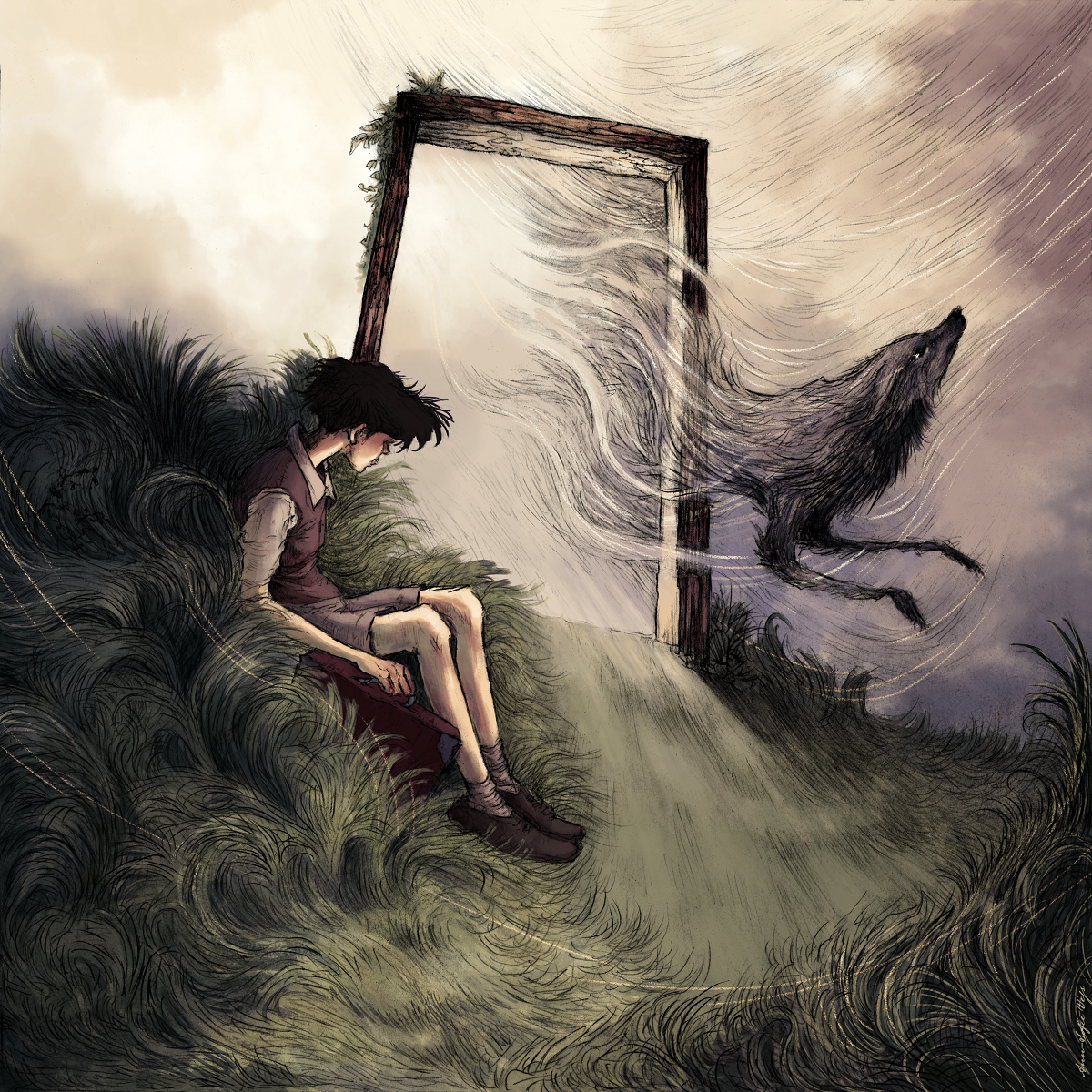 Brynja featured onBeautiful Songwriting 6
Brynja featured onBeautiful Songwriting 6You can stay updated with Brynja on Facebook and Instagram, and stream her music on Spotify.
If you enjoyed reading this interview and happen to think we're doing something right, please consider sharing the link -- whether on social media, or just with a friend, it'd really help us out! We're also on Facebook, Instagram (@alonelyghostburning) and Twitter, so if you'd like to keep up-to-date with the publication of new content, and also provide us with a whole heap of motivation, please do give us a like or follow.
